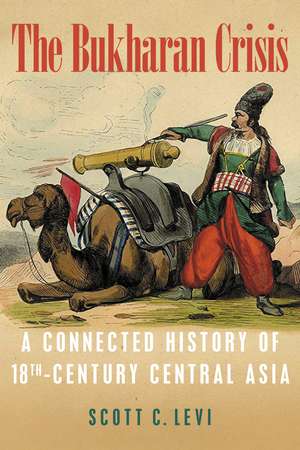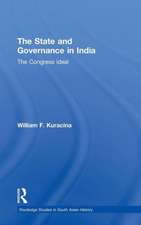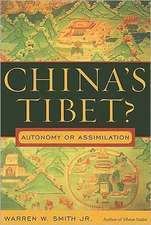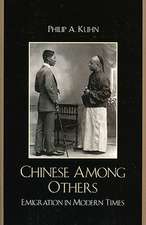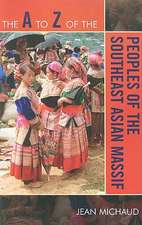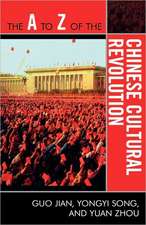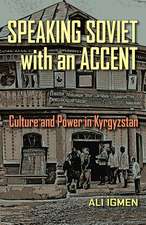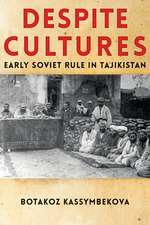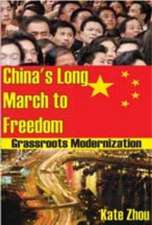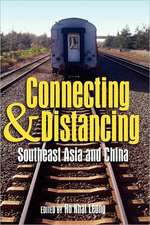The Bukharan Crisis: A Connected History of 18th Century Central Asia: Central Eurasia in Context
Autor Scott C. Levien Limba Engleză Paperback – 2 iun 2020
In the first half of the eighteenth century, Central Asia’s Bukharan Khanate descended into a crisis from which it would not recover. Bukharans suffered failed harvests and famine, a severe fiscal downturn, invasions from the north and the south, rebellion, and then revolution. To date, efforts to identify the cause of this crisis have focused on the assumption that the region became isolated from early modern globalizing trends. The Bukharan Crisis exposes that explanation as a flawed relic of early Orientalist scholarship on the region.
In its place, Scott Levi identifies multiple causal factors that underpinned the Bukharan crisis. Some of these were interrelated and some independent, some unfolded over long periods while others shocked the region more abruptly, but they all converged in the early eighteenth century to the detriment of the Bukharan Khanate and those dependent upon it. Levi applies an integrative framework of analysis that repositions Central Asia in recent scholarship on multiple themes in early modern Eurasian and world history
In its place, Scott Levi identifies multiple causal factors that underpinned the Bukharan crisis. Some of these were interrelated and some independent, some unfolded over long periods while others shocked the region more abruptly, but they all converged in the early eighteenth century to the detriment of the Bukharan Khanate and those dependent upon it. Levi applies an integrative framework of analysis that repositions Central Asia in recent scholarship on multiple themes in early modern Eurasian and world history
Din seria Central Eurasia in Context
- 15%
 Preț: 538.27 lei
Preț: 538.27 lei -
 Preț: 429.12 lei
Preț: 429.12 lei -
 Preț: 358.46 lei
Preț: 358.46 lei -
 Preț: 358.46 lei
Preț: 358.46 lei -
 Preț: 387.82 lei
Preț: 387.82 lei -
 Preț: 422.97 lei
Preț: 422.97 lei -
 Preț: 389.76 lei
Preț: 389.76 lei -
 Preț: 424.88 lei
Preț: 424.88 lei -
 Preț: 386.88 lei
Preț: 386.88 lei -
 Preț: 385.91 lei
Preț: 385.91 lei -
 Preț: 425.64 lei
Preț: 425.64 lei -
 Preț: 421.03 lei
Preț: 421.03 lei -
 Preț: 387.82 lei
Preț: 387.82 lei -
 Preț: 382.25 lei
Preț: 382.25 lei -
 Preț: 423.91 lei
Preț: 423.91 lei -
 Preț: 386.88 lei
Preț: 386.88 lei -
 Preț: 422.97 lei
Preț: 422.97 lei -
 Preț: 421.03 lei
Preț: 421.03 lei -
 Preț: 385.91 lei
Preț: 385.91 lei -
 Preț: 384.92 lei
Preț: 384.92 lei -
 Preț: 384.00 lei
Preț: 384.00 lei
Preț: 246.86 lei
Nou
Puncte Express: 370
Preț estimativ în valută:
47.24€ • 49.45$ • 39.09£
47.24€ • 49.45$ • 39.09£
Carte disponibilă
Livrare economică 17-31 martie
Preluare comenzi: 021 569.72.76
Specificații
ISBN-13: 9780822945970
ISBN-10: 0822945975
Pagini: 192
Ilustrații: 25 b&w illust.
Dimensiuni: 152 x 229 x 20 mm
Greutate: 0.34 kg
Ediția:1
Editura: University of Pittsburgh Press
Colecția University of Pittsburgh Press
Seria Central Eurasia in Context
ISBN-10: 0822945975
Pagini: 192
Ilustrații: 25 b&w illust.
Dimensiuni: 152 x 229 x 20 mm
Greutate: 0.34 kg
Ediția:1
Editura: University of Pittsburgh Press
Colecția University of Pittsburgh Press
Seria Central Eurasia in Context
Recenzii
“A masterful . . . synthesis of how oasis Central Asia from the sixteenth to the nineteenth century fits within world history. . . . The Bukharan Crisis succeeds admirably in its aim to relate Central Asia to major trends in world history. It is an ideal introduction both to world history for Central Asianists and to Central Asia for world historians. The critique of the Silk Road concept will be of particular use to students.” —H-Net Reviews
“A concise, rigorous, synthetic intervention that crystalizes key insights from an established career of research within the context of larger issues in the field. . . . [It is] one of the very few works to put recent research from Central Asian studies in dialogue with scholarship on world history, from maritime trade and climate change, to technology and orientalism. . . . The readership for this work will be justifiably broad. Non-specialists will find the best work coming out of Central Asia translated into an accessible framework. Central Asianists will be challenged to reengage established research in new ways.” —Oxus Society
“Scott Levi’s The Bukharan Crisis brings the history of 18th-century Bukharan emirate into dialogue with major recent debates in the historiography of early modern Eurasia, such as Sanjay Subrahmanyam’s ‘Connected Histories’, Victor Lieberman’s Strange Parallels, and Geoffrey Parker’s Global Crisis. It contains a great deal of learning worn very lightly, and manages the rare feat of being accessible to undergraduates while making a significant and lasting contribution to scholarship.” —Alexander Morrison, New College, Oxford
“Levi reorients our perspective on early modern world history, putting Central Asia back in the center, where it belongs. In this accessible, lively, fact-filled account, he shows how Central Asians, despite political upheaval, actively engaged in the world economy, joining a vast ‘multivectored network’ linking Russia, China, India, and the Middle East. Challenging conventional wisdom, while adding new life to well-worn concepts like the Silk Road, or the decline of nomadism, he inspires scholars and general readers to tackle big historical questions in a serious way.” —Peter C. Perdue, Yale University
“A concise, rigorous, synthetic intervention that crystalizes key insights from an established career of research within the context of larger issues in the field. . . . [It is] one of the very few works to put recent research from Central Asian studies in dialogue with scholarship on world history, from maritime trade and climate change, to technology and orientalism. . . . The readership for this work will be justifiably broad. Non-specialists will find the best work coming out of Central Asia translated into an accessible framework. Central Asianists will be challenged to reengage established research in new ways.” —Oxus Society
“Scott Levi’s The Bukharan Crisis brings the history of 18th-century Bukharan emirate into dialogue with major recent debates in the historiography of early modern Eurasia, such as Sanjay Subrahmanyam’s ‘Connected Histories’, Victor Lieberman’s Strange Parallels, and Geoffrey Parker’s Global Crisis. It contains a great deal of learning worn very lightly, and manages the rare feat of being accessible to undergraduates while making a significant and lasting contribution to scholarship.” —Alexander Morrison, New College, Oxford
“Levi reorients our perspective on early modern world history, putting Central Asia back in the center, where it belongs. In this accessible, lively, fact-filled account, he shows how Central Asians, despite political upheaval, actively engaged in the world economy, joining a vast ‘multivectored network’ linking Russia, China, India, and the Middle East. Challenging conventional wisdom, while adding new life to well-worn concepts like the Silk Road, or the decline of nomadism, he inspires scholars and general readers to tackle big historical questions in a serious way.” —Peter C. Perdue, Yale University
Notă biografică
Scott C. Levi is professor of Central Asian history at The Ohio State University.
